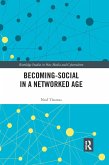Ever since the anti-globalisation protests in Seattle in 1999 the adoption of new information and communications technologies (ICTs) by social movement activists has offered the prospect for the development of global cyberprotest. The Internet with its transnational many-to-many communication facility offers a revolutionary potential for social movements to go online and circumvent the 'official' messages of political and commercial organisations and the traditional media, by speaking directly to the citizens of the world. Furthermore the use of electronic mail (e-mail), mailing lists, websites, electronic forums and other online applications provide powerful media tools for co-ordinating the activity of often physically dispersed movement actors. Moreover, ICTs may also contribute to the important function of social movements of shaping collective identity and countering the claims and arguments of established political interests. A growing body of literature during the last decades of the twentieth century attests to the significant impact SMs have had upon the restructuring of the political landscape. Most of that literature addresses the more traditional actors and institutions (e.g. parliaments, political parties, bureaucracy etc.). Less attention has been devoted to those manifestations of political action that are concentrated around social movements and all kinds of more or less institutionalised and sustainable forms of citizen mobilisation. This book is a collection of cases that take a critical look into the way ICTs are finding their way into the world of social movements
Hinweis: Dieser Artikel kann nur an eine deutsche Lieferadresse ausgeliefert werden.
Hinweis: Dieser Artikel kann nur an eine deutsche Lieferadresse ausgeliefert werden.








